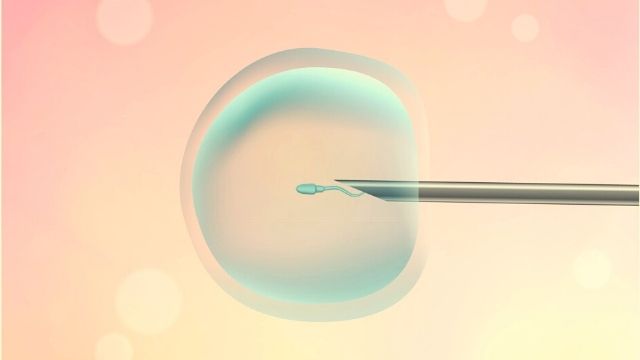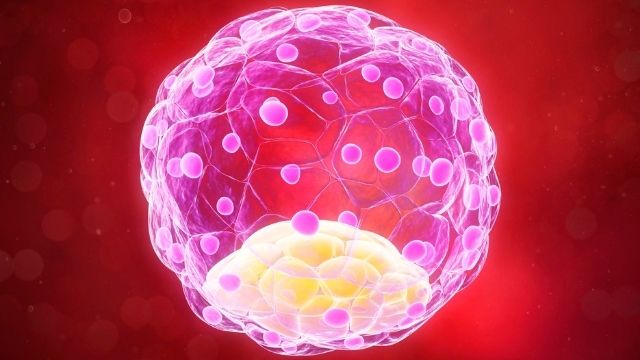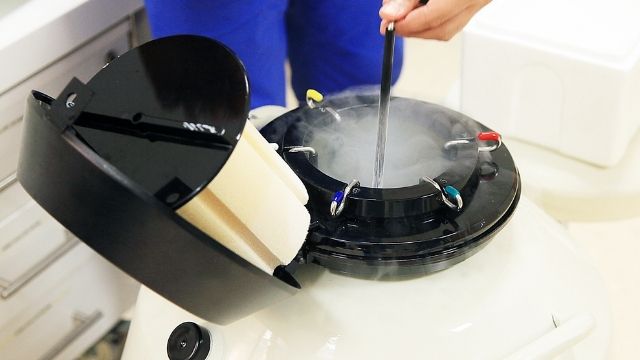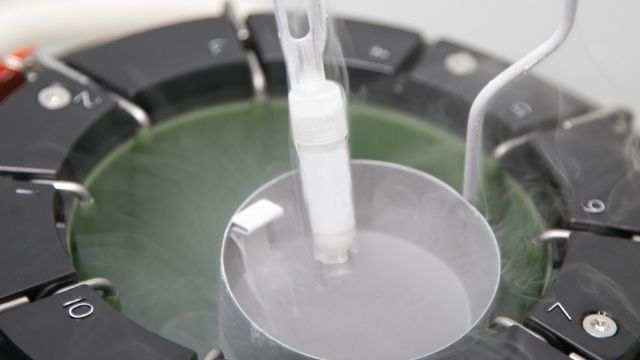Embryo Transfer

What is an Embryo Transfer?
Embryo Transfer is one of the last yet most important steps of an IVF procedure. It is the process of transferring an embryo into the uterus of a woman. During an IVF procedure, after retrieval of eggs and sperms is done, they are then fused in the lab. Once the fertilization takes place, the embryologist selects healthy embryos and transfers them into the uterus. It is a quick and painless process in which the patient doesn’t require complete bed rest.
Everything You Need to Know About Embryo Transfer
The process to place the embryo in the uterus
Generally, we let the embryo to grow for 5 days and choose the best blastocyst for transfer. Here at Gunjan IVF World, we believe in total transparency and so, before transfer the embryologist takes out the embryo from the incubator and shows it to the patient on the screen at almost 1000 times magnification. The patient is asked to hold urine and have a partially full bladder so as to correct uterine inclination and increase the ease of transfer.
After cleansing the cervix with a solution, the doctor will place a vaginal speculum to visualize the cervix. Then an outer hollow transfer catheter is passed through the cervix in position inside the uterine cavity. It helps in the accurate placement of the embryo. This is generally 1 to 2 cm from the top of the uterine cavity.
Then the embryologist will bring the inner catheter containing the embryo(s) from the lab, which is very closely located hardly a few feet away. It helps the doctor to minimize the time during which the embryos are exposed as embryos are very sensitive to temperature change. Once we have the embryo(s), the doctor feeds the catheter with the embryo(s) through the outer catheter that is in place in the uterine cavity already.
After placement of the embryo(s), the embryologist rechecks the catheter under the microscope to make doubly sure that the embryo(s) is transferred properly. Once the embryo has been transferred back into your uterus, it will not have a place to move freely or fall out.
When your embryo is allocated between the uterine walls and the muscle contracts and builds a protected environment for your embryo to finally bury itself deep within your thick uterine lining and start to grow.
As the uterus is a tough muscular organ it protects the embryo or fetus. This is the place where the embryo attaches and holds the implanted embryo in place. Therefore, you cannot pee or poop out your embryo.
Sub Treatments For IVF
We are one of the Best IVF Clinic in Delhi NCR!
51.8K
Subscribers
4.6 (383 reviews)
4.5 (409 reviews)
3.5 (254 reviews)

5 Out Of 5
The Do’s and Don’ts post Embryo transfer
Honestly speaking as per research you can get up immediately after embryo transfer with no adverse outcomes, but since there is so much anxiety involved we usually recommend the person to rest for 30 to 60 min. In fact, as per a study published in a renowned journal Fertility and Sterility ((Fertil Steril 2013; 100: 729-35), there were better pregnancy rates with the immediate resumption of normal activities.
- Afterwards, you are free to continue with the physical activities like to use washrooms, stand, sit, or go for a good walk. You can continue doing your routine household or office work as before. THERE IS NOT ROLE OF BED REST. If you are active then your uterus has a better blood supply and better chances of IVF success.
- Any fluid you may see coming out from the vagina it is due to the sterile saline used for cleaning. Minimal spotting can also occur and there is nothing to worry about it as well. There are no risks that the healthy receptive embryo inside would fall out.
- There is no role of any particular position after embryo transfer. You can sit or lie in any position.
- Embryos do not like heat, so avoid sauna, hot baths hot jacuzzi among others. Showers are fine as they will not raise your body temperature.
- Generally, you have to be just a sensible example, abstain from strenuous exercises but easy walks and exercises are just fine. You can climb up and down the stairs but you don’t have to run up the stairs.
- The embryo attaches to the wall in the first 24 hours though the implantation process goes over a few days. It is recommended, that you should pamper yourself to be more relax and be at ease. Laughter is the best medicine, so watch laughter and comedy shows.
Gunjan IVF World has always maintained that the procedure continues smoothly. Experienced doctors and nurses always make it a point to make you feel relaxed and be at ease. You will have proper guidance till the procedure ends.
Patient Guide
Along with treating our patients, we also guide them with the help of our educational blogs and videos.
Educational Blogs

Why do blastocyst not implant?
The reasons for an unsuccessful implantation are very uncommon and rare as well. Blastocyst provides a greater chance of becoming pregnant therefore the procedure is handled properly as well.

What happens after blastocyst transfer?
Before jumping to the immediate question first let’s have a small brief of what is blastocyst transfer. Blastocyst transfer is the transfer of embryos that have achieved a higher stage of development.

Can blastocyst fall out?
Maximum patients worry about what they can do or cannot do after an embryo transfer. They have the fear that if they do something wrong, the embryo would not attach or fall out.
Educational Videos

What is TORCH test in infertility and why is it done?
There are numerous tests that are available to infertile couples that are recommended by some doctors, which might help them determine the cause of their infertility. One such test is the TORCH test.

What is Prolactin Hormone?
Prolactin is a hormone produced by the pituitary gland present at the brain’s base. It is best known for its role in lactation, or milk production, in breastfeeding women.However, Prolactin also plays other important roles in both men and women, such as regulating the immune system, stimulating the growth of new blood vessels, and influencing behaviour and reproductive function. In this blog, we will explore what Prolactin is, how it works, and what happens when there are imbalances in prolactin levels.

Frequently Asked Questions about Low AMH
Primordial and Preantral follicles produce AMH. So the AMH level indicates the number of eggs or egg reserves you have in your ovary. Putting simply, if your AMH level is low, then the number of eggs in your ovary is less.












